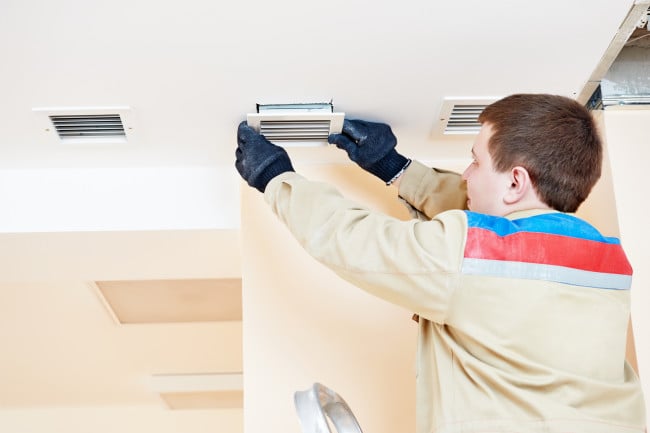How to keep your apartment stink-free in the smelliest time of year

Summer is New York's most fragrant season—every day we seem to discover a special new variant on "hot trash smell"—and suddenly normal apartment odors have the force of stinkbombs, thanks to the heat and humidity.
Besides cleaning frequently, keeping garbage and compost in airtight containers, and disposing of it early and often, how can you keep your apartment an oasis from the city's never-ending bouquet?
**This story originally ran in July, 2014, and was updated in June, 2017.**
We dug through our archives and consulted with indoor air quality expert Maria Vizzi for solutions to some of the most common sources of apartment smells, plus how to eliminate them.
Construction
Whether you're living in the shadow of the Midtown building boom or have a neighbor who's doing serious work on their Brooklyn backyard, there's something very particular (and particularly awful) about the acrid, metallic smell that often accompanies this type of work, not to mention the kicking up of sawdust.
In lieu of shutting your window for weeks on end, Vizzi recommends investing in a high-efficiency particulate air filter—more commonly known as a HEPA filter—to keep your air as clean as possible as it circulates. Allergy sufferers swear by these tools, which can cost anywhere from $200 to over $1,000, depending on the model.
That stale, post-vacation air
Even when you've diligently cleaned and taken out the trash before jetting off, when you come back from days or weeks on the road, apartments will undoubtedly have that stagnant mustiness about them.
It shouldn't be an issue if you're in a post-war building with an up-to-date ventilation system, says Vizzi, but if you're in a pre-war (and aren't thrilled with leaving your windows open the entire time you're gone), she recommends a solution as old-fashioned as your building's vents: have a neighbor come in and air the place out every couple of days. (They can get a nice cross-ventilation going by opening windows on both ends of the apartment.)
Neighbor smells
We've all had odors waft down the hall from next door. Unfortunately, these tend to be more of a building-wide issue, Vizzi says, rather than something you can nip in the bud on your own.
"This is where things can get very litigious," she says. "The spread of these different odors—cat smells, cigarettes, mold, cooking, etc.—all depends on how the ventilation is working in that particular building."
If the hallways are starting to reek to an unusual (or unlivable) degree, it's time to get in touch with the super or the building's management, first to check if simple fixes—repairing old weather stripping or holes in the walls—will solve the problem, and then to bring in a professional to check on the building's vents, which Vizzi describes as "the lungs of the building."
Between vents, roof fans, and all the parts in between that are supposed to keep things circulating, there are a lot of steps in the process where something can go wrong.
And, as with all requests you make of your building's management, it's worth keeping a record of them. If things get really bad with odors or unsanitary conditions, real estate attorney Steven Wagner of Wagner Berkow has told us, you could end up entitled to a rent abatement.
Your own potpourri
Just because you've got a beloved cat (or three) or an obsession with curry recipes doesn't mean you to have to bask in those smells 24/7.
As a rule of thumb, it's always better to try to eliminate smells than to cover them up with something like Febreze or a scented candle. For this, it's worth investing in some tools.
Vizzi particularly recommends something called the Bad Air Sponge, a pot of gel that absorbs odor molecules and neutralizes scents in whatever room you put it in. (Two of them will run you $19.99.)
"It really cancels out smells instead of putting an odor over another odor," she says, and notes, "I use it to help with my own dogs, and have even recommended it to some supers for building hallways." It'll work on odors within about a 400-square-foot radius, and works especially well if you keep the room ventilated during the process.
In this weather, a de-humidifier can also work wonders—muggy air actually helps disseminate odor molecules—but if you don't feel like splashing out on yet another expensive piece of equipment that'll run up your electric bills, consider cranking your air conditioner. It'll pad your Con Ed bill, yes, but as you've likely noticed before, air conditioning has a way of drying out the air in a room (it's actually part of how it cools things down). No one's suggesting you leave your window unit running non-stop for the next two months, but for immediate relief from summer heat and the smells that come along with it, sometimes the classic solution is also the best one.
You Might Also Like

























